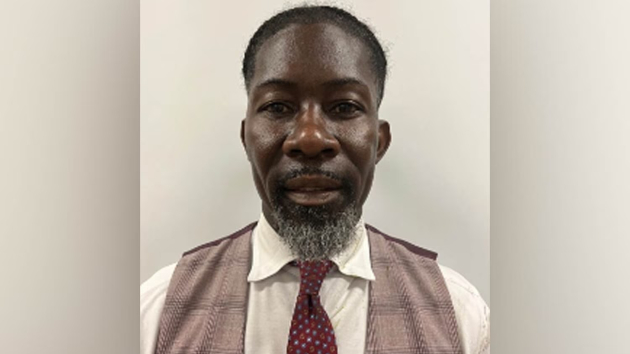Some Black farmers worry they could be left out of federal debt relief programs
Written by ABC Audio ALL RIGHTS RESERVED on May 3, 2023

(KEYSVILLE, Ga.) — For nearly three decades, Lucious Abrams says he has gotten letters from the United States Department of Agriculture promising to wipe out his debt –but for him and other Black farmers in the country, receiving relief from the federal government has been a difficult process.
Every morning in the rural town of Keysville, Georgia, the sun rises over 600 acres of farmland that has belonged to Abrams’ family for three generations.
It is now planting season, typically the time when he would start tending to crops, but on this farm, he says nothing is operational.
“We used to grow soybeans, corn, cotton before we were unable to farm,” Abrams told ABC News Live Prime. “This is the devastation that is happening to most Black farmers.”
After accruing over $1.2 million dollars of debt over the course of 28 years, the 70-year-old farmer spends most of his time looking at things he doesn’t have the money to fix.
His financial burdens have hindered his ability to maintain his land and farming equipment.
“I feel like I’ve been left on “‘Gilligan’s island,” Abrams told ABC News senior Congressional correspondent Rachel Scott in an interview.
Land Lost and Justice Deferred
Over the last century, Black farmers have lost more than 12 million acres of land, according to USDA data.
In 1920, 14 percent of all farms were operated by Black farmers, owning more than 16 million acres. But by 2017, that figure had plummeted to 1.7 percent – just half a percent of the country’s 4.7 million acres of farmland, according to the USDA.
On March 6, 2021, Congress approved $4 billion in loan forgiveness for farmers of color in a program aimed to address historic discrimination by the USDA, which has acknowledged routinely denying loans to farmers of color. The USDA told ABC News approximately 19,000 Black farmers were identified and sent letters notifying them that they may be eligible for federal aid under this program.
However, the legislation was halted by a lawsuit from white farmers who claimed they were being excluded because of their race.
“To be eligible for this debt relief, you had to be a minority. If you weren’t a minority, you were excluded,” Sid Miller, Texas Agricultural Commissioner, said in an interview with ABC News.
Miller is a rancher and filed the lawsuit in 2021 as a private citizen.
“I’m all for helping minority farmers and farmers overall, but our Constitution prohibits discrimination,” Miller continued.
Democrats subsequently rewrote the plan in the Inflation Reduction Act of 2021, removing references to race in the eligibility requirements and splitting up relief into two funds: distressed borrowers relief and discriminated borrowers relief.
“It was what it was,” Sen. Cory Booker (D-NJ) told Scott in an interview, reflecting on the decision to rewrite the legislation.
“We have a legal system now dominated by a lot of conservative jurists who would not let that program go forward and we knew that would put more farmers in peril. Congress has done their job now. It’s on the USDA now to make sure that they’re gonna implement this in a way that eligible farmers get the resources they are owed,” Booker continued.
Earlier this year, Booker led a group of several Democrats including Sen. Raphael Warnock (D-GA) in reintroducing the Justice for Black Farmers Act which aims to protect black farmers and address historic discrimination in lending.
“I want to see USDA get the farmers the relief that we passed through legislation. It is taking entirely too long. While folks are caught up in bureaucracy and processes, another planting season has come and gone, ” Warnock said.
Meanwhile, farmers like Abrams have been left in limbo for decades with staggering debt.
“The world is turning their head away. This is a moral issue. we are here in America and you’re going to have lawyers put a clause in there and we have no recourse? The Senate, the Congress pass it and we still can’t get justice,” Abrams said.
It’s not the first time Black farmers were promised relief they didn’t receive.
A History of discriminatory practices against Black farmers
Abrams was one of six plaintiffs in the landmark Pigford v. Glickman, a class action lawsuit between the U.S. department of agriculture and Black farmers. The suit claimed that the agency had discriminated against Black farmers on the basis of race and failed to investigate or properly respond to complaints from 1983 to 1997.
It resulted in a $1.2 billion settlement in 1999, but confusion around paperwork and deadlines led to thousands of claims being denied.
The disparities in access to federal aid persist for minority farmers. In 2022, just over a third of all farmers who identified as Black and applied for direct loans were approved, according to an ABC news analysis of USDA data.
In comparison, the data shows, 72 percent of farmers who identified as white and applied for the same loan were approved.
USDA officials told ABC News at least 19,800 distressed farmers have received aid from the relief programs, but the federal agency is not tracking loan recipients by race, making it difficult to see the impact. The agency says payments for discriminated borrower claims won’t be distributed until the end of the year.
“I think we can agree that, yes, we recognize that there were enough disparities in long performance among black and brown farmers that we needed to do something. And I’m convinced that race was a, was a good metric by which to make those decisions, but we were sued,” Dr. DeWayne Goldmon, Senior Advisor for Racial Equity for Tom Vilsack, U.S. Secretary of Agriculture.
“We have decided to focus on following the mandate of the law. Right now, we’re focused on implementing it and getting people back farming and participating in programs as fully as they can,” Goldmon added.
Goldmon, who is also a Black farmer, oversees efforts to address racial disparities at USDA and acknowledges the distrust.
“I’ve had conversations with Secretary Vilsack and my other colleagues across the department, in these positions, you know, our task is to move forward as boldly as we can and make sure that we do the work that’s required,” the senior advisor told Scott in an interview.
Soon after ABC News asked the USDA about Abrams’ case, he said he received notice from the department that his debt had been forgiven.
It has been the relief he’s been waiting for.
“I cried tears of Joy. It’s taken me over 30 years. I’m 70-years-old, that’s almost half my life. I’ve had almost 30 years of let downs, but out of all that, I knew that one day God was going to find a way,” Abrams told ABC News.
“I went out to the grave and talked to my mom, my dad and my sisters told them our blessing finally came. We got the debt paid off,” he added.
Copyright © 2023, ABC Audio. All rights reserved.

 KVSP
KVSP 




